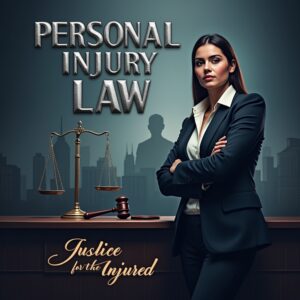Amusement parks within Arizona amuse several visitors every year by participating in thrill rides, water slides, and family entertainment. While places like this provide a lot of excitement no matter the visitor’s age, accidents can happen in unexpected ways.
From malfunctioned rides to the slip-in concession areas, injuries may be due to negligence or faulty equipment. Sadly, victims in such situations usually do not know their legal rights or who should be held responsible while filing cases of personal injury.
To help you handle these complex situations, this article explores the key elements of amusement park accidents in Arizona.
Common Types of Amusement Park Injuries
Amusement parks pose significant risks, especially around high-speed rides and crowded areas. Many visitors experience frequent injuries, such as whiplash from roller coasters or slips around water attractions. Others are even facing broken bones in the aftermath of ride mishaps.
In other cases, food-related accidents also occur. Burns from hot beverages and food poisoning caused by contaminated meals are common occurrences.
The most critical of these injuries are head, neck, and spinal trauma from equipment failure in thrill rides like roller coasters and water slides. Any one of these could result in expensive medical treatment and a lifetime of health problems.
Understanding Premises Liability in Arizona
Premises liability laws establish a duty of care in property owners to maintain safe environments for visitors. Amusement parks are subject to observation regarding adherence to these laws to prevent many different types of hazards on their premises.
Most individuals who come to an amusement park are considered “invitees,” and the park assumes a duty of care for them. The site management must, therefore, keep rides safe, maintain walkways, and provide adequate security. Failure to meet these standards may result in liability for injuries.
Arizona’s codes also require parks to inspect the premises for any potential hazards regularly. Once a hazard has been discovered, failure to rectify it immediately may allow victims injured by that hazard to file a personal injury claim under premises liability.
Vicarious Liability: When Park Employees Are at Fault
Sometimes, park employees are directly responsible for accidents, such as ride operators failing to follow safety protocols. In these cases, the amusement park can still be held liable under vicarious liability laws.
Under vicarious liability, the employer is accountable for the actions of employees during their duties. So, if a worker’s negligence causes an injury, like improperly securing a rider, the park itself may be financially responsible.
Vicarious liability makes it easy for injured parties to seek compensation from the amusement park rather than pursuing individual employees. Victims can recover damages more easily since the park typically has greater financial resources and insurance coverage.
Handling Roller Coaster and Ride Malfunction Claims
Roller coasters and high-speed rides are often the source of serious injuries when malfunctions occur. Riders can suffer anything from broken bones to head trauma due to faulty safety harnesses or mechanical failures.
“Amusement parks must ensure regular inspections and proper maintenance of all attractions. If a malfunction causes injury, liability may extend beyond the park itself, involving manufacturers or maintenance companies responsible for defective equipment,” says Jeffrey Phillips, a certified personal injury lawyer from Phillips Law Group.
A personal injury attorney can help investigate these claims thoroughly by determining whether negligence, poor design, or manufacturing flaws contributed to your accident.
How Legal Representation Can Maximize Your Claim
A personal injury attorney can make a big difference when dealing with amusement park accident claims. Many parks try to minimize payouts by offering quick settlements that do not cover all medical expenses or lost income.
Legal representation ensures that all avenues for compensation are explored. Whether it is economic damages like medical bills or non-economic ones such as pain and suffering, an attorney can assess the full scope of your losses.
Personal injury lawyers also have experience negotiating with insurance companies that often try to undervalue claims. They help build a strong case by gathering evidence, consulting experts, and preparing for trial if necessary.
